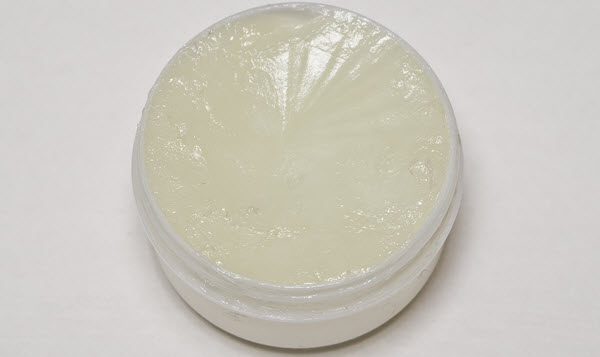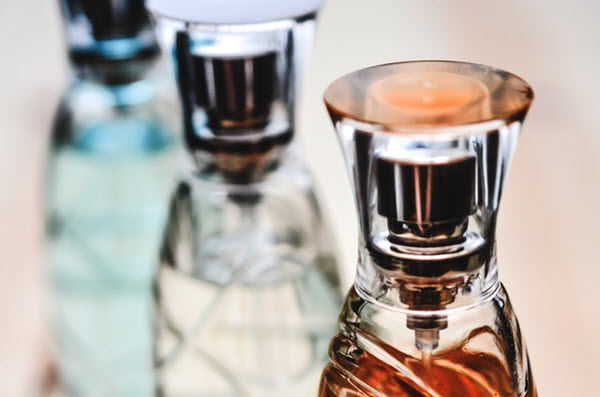Warning! 5 Beauty Ingredients You Need To Avoid This Winter
By Melissa Mellie
March 30, 2017 • Fact checked by Dumb Little Man

As the temperature drops, the battle for healthy skin begins.
During winter, your skin can experience a lot of discomforts, like scaling, flaking, and itching. Applying creams and moisturizers without considering the pros and cons of the ingredients they contain can make things a lot worse for you.
If you are planning on changing your products or adding items to your vanity, below is a list of ingredients you should avoid and winter skin care tips you need to know.
Petrolatum

Petrolatum, also known as petroleum, is extracted from crude oil. It is often marketed as a lubricant. In addition to this, it also makes a great remedy for diaper rash, raw nose, and flaky skin.
Health Canada considers petrolatum non-toxic. However, EWG gives it a ‘moderate hazard' safety rating, which means it requires further studies to determine its safety level.
EWC and CCTFA warn the public about the excessive use of petrolatum as it's linked with the risk of contamination from polycyclic aromatic hydrocarbons. It's a cancer-causing chemical that can be found in crude oil.
The Experts' Take:
Celeste Lutrario, vice president of research and development for Burt's Bees says that petroleum is an exclusive barrier which helps lock in moisture. It doesn't, however, allow moisture to be absorbed from the atmosphere. As a result, petrolatum can potentially suffocate the skin.
Reflecting this claim, a research at Herb Research Foundation noticed that petrolatum used in skincare products suffocate the skin by absorbing the chemicals directly into the bloodstream. This, in turn, decreases oxygen absorption by the skin.
Petrolatum can cause skin photosensitivity and promote sun damage, too. It interferes with the body's moisturizing mechanism leading to dry skin.
The comedogenic property of petrolatum completely seals off the skin from air, water or anything else that wants to enter or leave its surface.
Soap

The skin has its natural barrier which is maintained by its pH level. Normally, the skin's pH level is marked between 4 to 6.5.
Soaps, on the other hand, are considered harsh on the skin due to their high pH level. Because of their lye and fat contents, they are considered alkaline and can disrupt the skin's natural pH level.
The Experts' Take:
Sherry Ingraham, M.D, M.P.H, a dermatologist in Texas, says that soaps strip the skin of lipids. One of her winter skin care tips is to avoid using soap-based cleansers.
Using soap makes the skin dry, especially during the cold season. It sucks the natural oils from the skin and leaves it dry.
Apart from that, regularly washing your face with soap will leave your face haggard and wrinkled. The harmful chemicals in soap can clear the dust and dirt on your skin, but they can compromise your skin's health. Because of these things, experts recommend the use of syndet bars (synthetic detergent cleansers) instead.
This doesn't mean that all soaps harm skin. Products with herbal base, for example, contain plenty of moisturizing ingredients.
See Also: 10 Best Skin Foods For Healthy Glowing Skin
Astringents
Generally, people who have oily skin use astringents to minimize the size of their pores. Unfortunately, most of these astringents are alcohol-based, which means they can potentially dry your skin out.
To avoid the excessive dryness, use an astringent that has witch hazel as its main ingredient. Pick one that has anti-bacterial properties, too.
The Experts' Take:
Astringents, especially those containing alcohol can strip the skin's natural oils, says Dr. Foitl.
The overuse of astringent will hurt your skin, especially if you already have dry skin. People with sensitive skin should also avoid alcohol-based astringents completely to avoid the risk of irritation.
In addition to an astringent's main ingredient, you should watch out for the amount you use.
Since astringents have drying effects, applying excessive amounts can force the skin to produce excessive oil to protect itself. This defense mechanism can put your skin at risk of more problems, like skin breakouts and clogged pores.
The main thing you have to remember is to use products in lesser quantity. Overuse of astringents, especially in winter, can result in uneven complexion. It can also make your skin unprotected, weak and prone to dermatitis, dry skin and even infection.
Heavy Fragrances

There are about 500 potential chemicals used under the name fragrance. Unfortunately, most companies do not list all the ingredients they used while making their products' fragrances.
To give you an idea, you should stay away from products that contain ethanol, acetaldehyde, and benzyl acetate. Other common chemicals used for fragrances include acetone, ethyl acetate, and a-pinene.
The Experts' Take:
The chemicals used in fragrances can cause irritability, mental vagueness, muscle pain and asthma. They can lead to sinus problems, headache, sore throat, and skin irritation, too.
Researchers have also established that a lot of ingredients found in fragrances are neurotoxins, which means they have poisonous effects on the brain and nervous system.
For a healthier solution, you should go for unscented or minimally scented products. Make sure to read labels properly and use products that contain natural ingredients.
Cortisone
Cortisone is a steroid that prevents the release of substances that cause inflammation. It is more commonly used in moisturizing creams and salves.
It decreases hyperpigmentation, hives, and stretch marks. Cortisone also works well in soothing dry skin and irritation.
Although beneficial, creams containing cortisone may cause stinging, burning, irritation, dryness and itching.
The Experts' Take:
“Don't fall into the trap of including cortisone creams into your routine,” advises Dr. Foitl. It can treat allergies and rashes if used in short term, but long term use can make your skin addicted to it. It can take months for the skin to return back to its normal state.
Apart from that, long term use of cortisone can lead to redness, dryness and painful burning, too. It can also cause enlarged pores and damaged blood cells.
Consult a doctor right away if your skin experiences any adverse reaction from using cortisone creams.
See Also: 5 Ways To Keep Your Skin Healthy This Winter
Melissa Mellie
Hi, I am Melissa Mellie, a rabid health and skincare aficionado. My inspiration lies in all things healthy and skin friendly. I'm living my words, currently using Dermology skin care products and recommend it highly.

